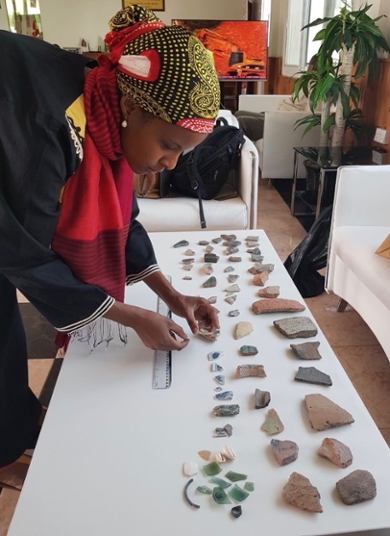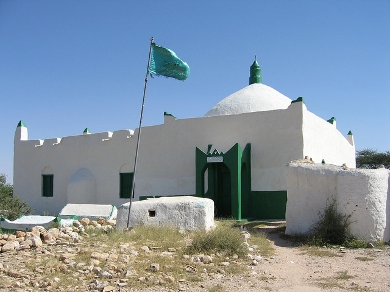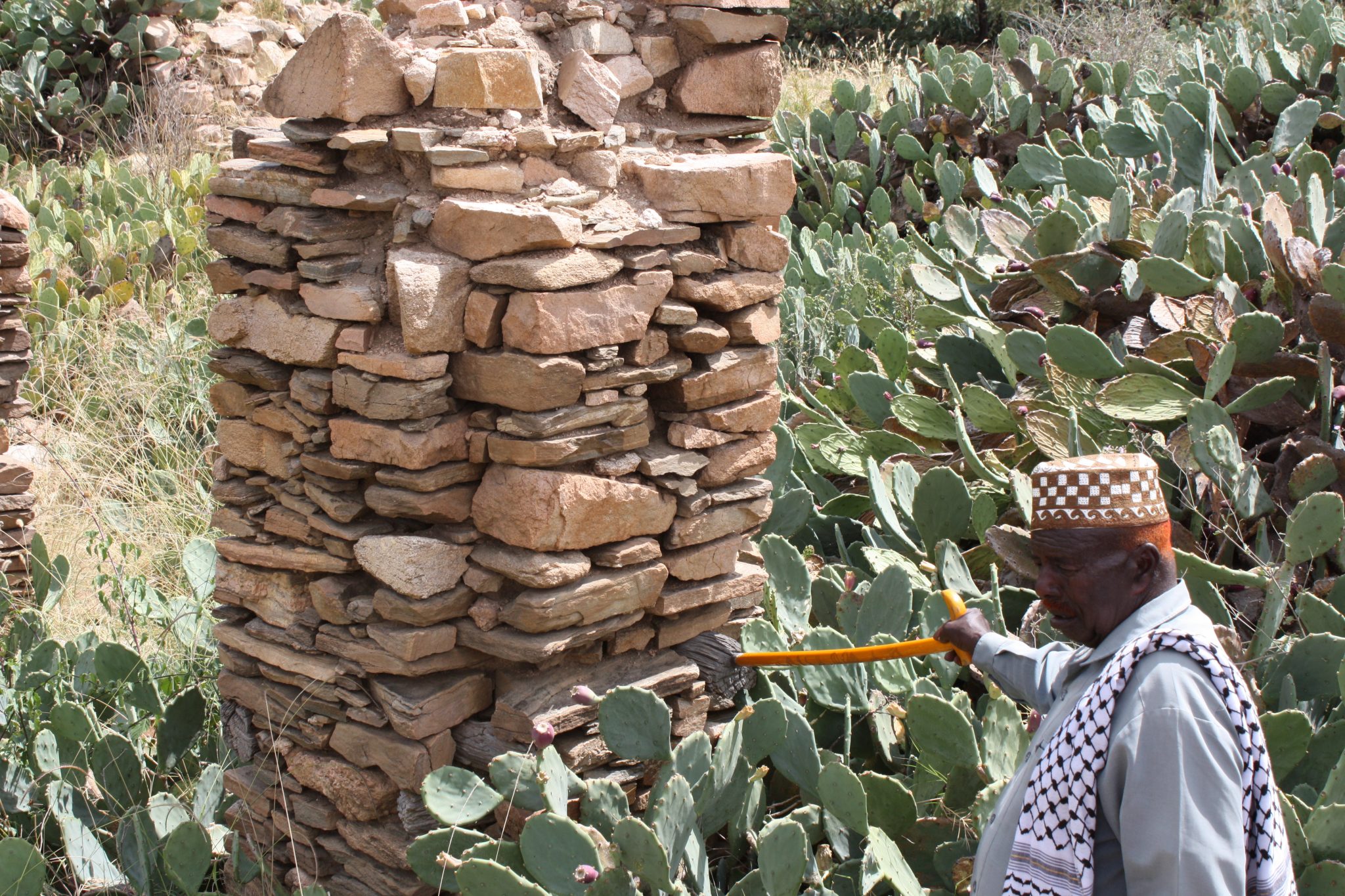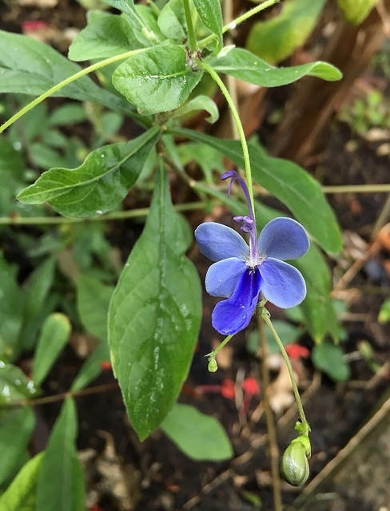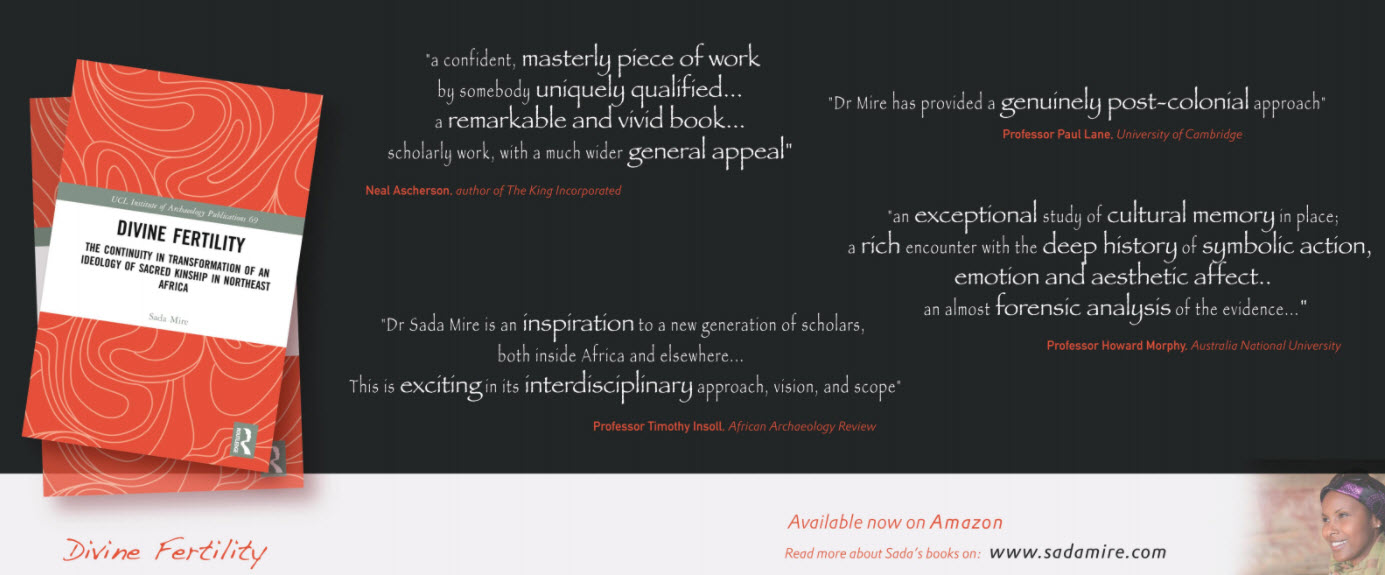Dr Mire’s new book is out: Divine Fertility: the Continuity in Transformation of an Ideology of Sacred Kinship in North-East Africa
Dr Sada Mire's new book Divine Fertility is out now!
Sada’s new book Divine Fertility has been published by Routledge on the 25th of March, 2020. Buy it here
Divine Fertility review: "... a confident, masterly piece of work..."
“This is a confident, masterly piece of work by somebody uniquely qualified to carry out the relevant research… this is a remarkable and vivid book, which probably only Sada Mire (with her combination of theoretical proficiency in several academic disciplines and local intimacy) could have achieved. This is scholarly work, with a much wider general appeal”.
-Neal Ascherson, Former Observer Correspondent, historian, and writer
Divine Fertility book review: "The book is an exceptional study of cultural memory in place..."
“Sada Mire grew up in the Horn of Africa and senses a continuity in sacred landscapes that cuts across space and time and the boundaries of states and religions. Her book provides a brave and bold conception of the regional system based on an almost forensic analysis of the evidence. Mire shows how the inclusion of material culture as evidence is central to understanding how continuities are created over time, but also how history can be masked at the same time as it is revealed. The argument is engrossing; chapter by chapter she builds up a convincing and absorbing argument for a discursive regional trajectory centred on the beauty and power of place curated over time by different faiths. The book illustrates the importance of location for symbolic action, knowledge and cultural memory, and the centrality of place as an entry point to understanding the deep past through an ongoing present. Underlying the history of the region is a syncretic trajectory, a multi-temporality, that is often challenged by fundamentalist positions but with an underlying structure that is centred on kinship deeply connected to a sacred landscape. As she concludes: ‘From out of the womb of ancient indigenous and regional religions there has arisen a set of ideas reflected in practices, features and objects, all of which seem to connect the north and the west of the Horn of Africa with the south and the east.’ The book is an exceptional study of cultural memory in place; a rich encounter with the deep history of symbolic action, emotion and aesthetic affect.”
-Howard Morphy FASSA. FAHA. Emeritus Professor, Head of the Centre for Digital Humanities Research, Research School of Humanities and the Arts, Australian National University
Join Dr Sada Mire's upcoming London and Cardiff Keynote Lectures
“Dr Sada Mire has been at the forefront of reviving archaeological research and heritage management in Somalia and Somaliland, after years of understandable neglect as a consequence of internal civil war and the more recent impacts of radical Islam across the region. With the support of the Somaliland government, she has rebuilt local heritage services in an imaginative manner drawing on indigenous conceptualisations of heritage values and heritage making. in so doing, Dr Mire has provided a genuinely post-colonial approach toward heritage protection and conservation in the country and how best to mobilise knowledge and memory of Somalia’s deep past for the greater benefit of current and future generations.”
-Paul Lane, Jennifer Ward Oppenheimer Professor of the Deep History and Archaeology of Africa, University of Cambridge
Join Sada in her upcoming speaking events in the UK: The British Academy in London and ASAUK at Cardiff)
Mire’s research is on the intersection of archaeology, ethnography and history of the peoples of North-East Africa, particularly Somalia, Ethiopia, Eritrea, Djibouti and Kenya. This major project started 2006 and culminates in a book, Divine Fertility, to be published by Routledge in 2019. Mire started mapping the ruined towns and sacred and archaeological medieval landscapes (click link for a free article) of Somaliland in 2007. It is the first study in Somali archaeology to map and systematically research why and how the indigenous institutions and pre-Christian and pre-Islamic belief systems continue and material culture, (rock) art, rituals, practices and landscapes associated with their ideologies. It is a interdisciplinary project studying past and present ritual practices through archaeological and anthropological methodologies, historical texts, historical linguistics, ethno-botany and archaeozoology. This book project examines the notion of sacred landscapes, associated rituals and material culture in the Horn of Africa and uses the Sufi Saint Shrine of Aw-Barkhadle in Somaliland as a departure to explore further in Somalia and Ethiopia the notion of fertility and its manifestation in practices, myths, legends and ancestors.
Resulting publications
If you are interested in finding out more about the sacred landscapes follow the links including indigenous and Islamic ideologies at Aw-Barkhadle ruined town (click link for a free article) published in African Archaeological Review (March Issue 2015) and the relationship between the fertility ideology, practices, sacred landscapes and materiality including sacred and medicinal plants (access free article by clicking) Anthropology & Medicine (Issue nov. 2016).
Copyright Sada Mire: all maps and photos

